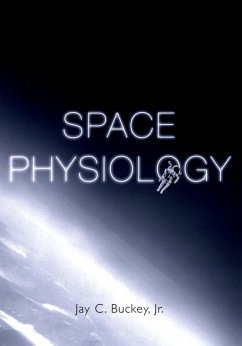The success of any space flight mission depends not only on advanced technology but also on the health and well-being of crew members. This book, written by an astronaut physician, is the first practical guide to maintaining crew members health in space. It combines research results with practical advice on such problems as bone loss, kidney stones, muscle wasting, motion sickness, loss of balance, orthostatic intolerance, weight loss, and excessive radiation exposure. Additional topics include pre-flight preparation, relevant gender differences, long-duration medical planning, post-flight rehabilitation, and the physiology of extra-vehicular activity. Designed as a handbook for space crews, this text is also an invaluable tool for all the engineers, medical personnel, and scientists who plan and execute space missions.
Dieser Download kann aus rechtlichen Gründen nur mit Rechnungsadresse in A, B, BG, CY, CZ, D, DK, EW, E, FIN, F, GR, HR, H, IRL, I, LT, L, LR, M, NL, PL, P, R, S, SLO, SK ausgeliefert werden.

